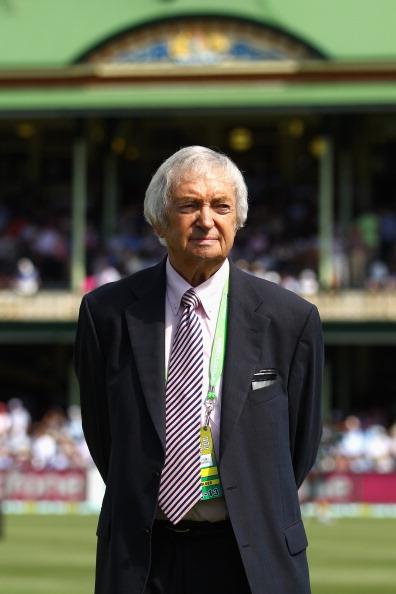Even if you are a champion cricket romanticist, chances are that you have heard little or nothing of Frank Gillingham.
But it’s a good time to remember the man who was born in Tokyo, played cricket for Essex and died in Monaco some 67 years back. Why? Because April 16 was the World Voice Day and Gillingham, who according to the Wisden Cricketers’ Almanack was also “a fine preacher who filled his churches to overflowing”, was the BBC’s first ball-by-ball commentator on the radio.
The International Cricket Council (ICC) on Thursday tweeted, “#WorldVoiceDay today is a chance to celebrate some of the classic voices of cricket!” The ICC went on to list a few great commentators and their unique utterances, which are as much part of the cricketing folklore as say Vivian Richards’s casual one-handed six over long on off John Emburey in the 1986 Antigua Test.
So there was Richie Benaud’s iconic, “Morning, everyone”, Bill Lawry’s “Got him, yes he’s gone!”, Tony Cozier’s, “The Queen’s Park Oval — as its name suggests, absolutely round!”, Tony Greig’s, “The little man has hit the big fella for six! He’s half his size!”, Christopher Martin-Jenkins’s, “And we don’t need a calculator to tell us that the required run-rate is 4.5454 per over” and John Arlott’s, “The batsman’s technique was like an old lady poking her umbrella at a wasp’s nest.”
There are others who have made themselves memorable with the mic. Say a Geoffrey Boycott, who once while criticising a decision to stop play because of bad light said: “My grandmother could have played him with a stick of rhubarb.” Closer home, Ravi Shastri’s “tracer bullet” comments, or Navjot Singh Sidhu’s, “Cooker and South Africa, both whistle in pressure”, are unforgettable stuff.
Coming back to Gillingham’s story, on May 14, 1927, the former wicketkeeper-batsman was chosen to do commentary on the Essex versus New Zealanders match at Leyton. He broadcast four stints, totalling 30-odd minutes.
Some historians however say that Pelham ‘Plum’ Warner, who played 15 Tests for England, was the first person to broadcast on cricket during the same match and since he had a “rather ineffectual, apologetic-sounding voice” that Gillingham was brought in.
But there’s one story that historians don’t debate on and it involves Gillingham. His first broadcast coincided with a rain break. After spending the first few minutes speaking about the game, Gillingham had nothing to speak about. Struggling to fill his time, Gillingham read out the advertisements on the hoardings around the ground. That infuriated the BBC, who in those days had a strict policy against anything commercial.
Such hardships though do not exist in modern times. But then, there are other matters which bother the commentators today. Michael Holding was reprimanded during the World Cup last year after describing standard of umpiring in the Australia-West Indies match as “atrocious”.
It’s a matter of great debate if there is a censorship on the commentator’s free voice. But it’s a fact that without them, the game, which thrives on its complexities and is traditionally played at a pace which demands story-telling, would never be the same.
For reference, listen to Ian Smith commentating during the final stages of last year’s World Cup semi-final and final. And then try watching the same on mute.










